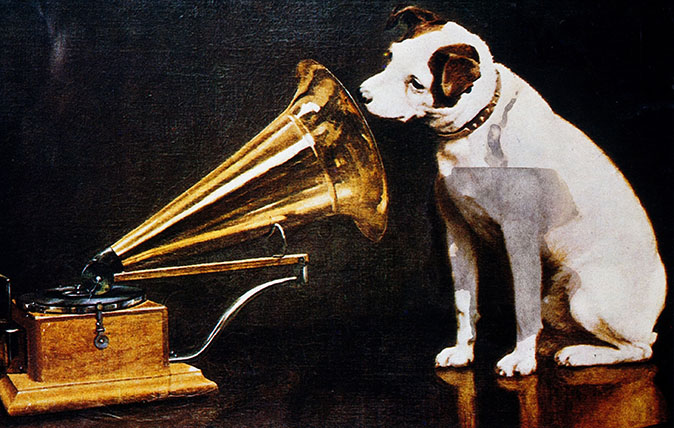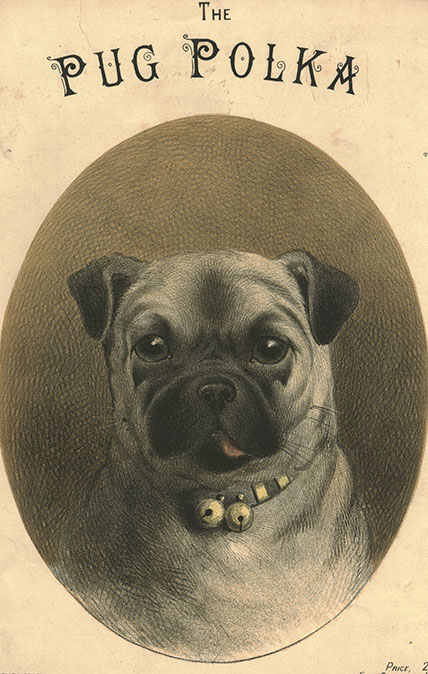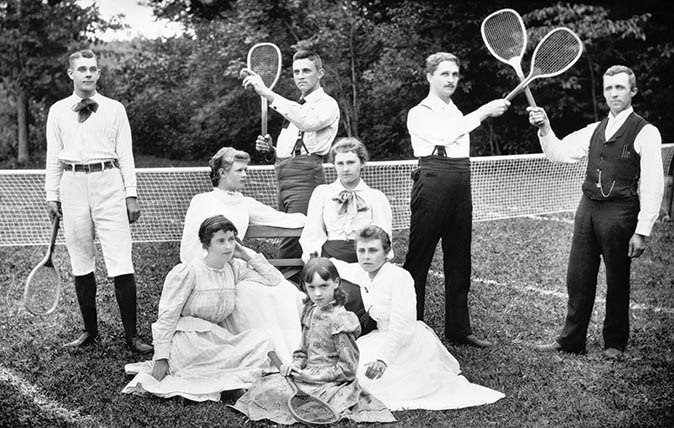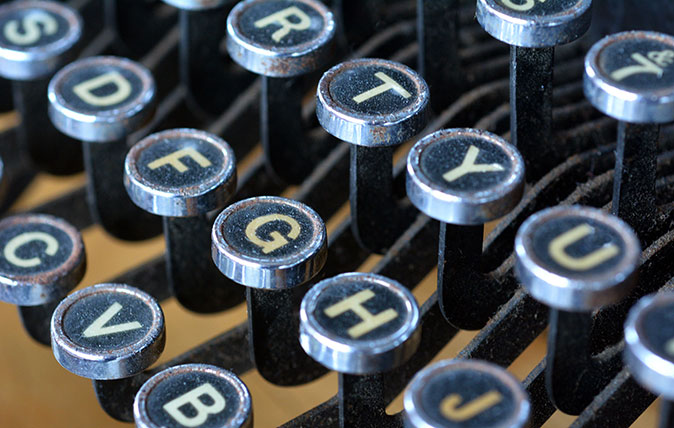Curious questions: Do dogs like listening to music?
As a nation of dog lovers, we’ve already seen home-cooking for canines, ‘pup cakes’ and Pawsecco. Now, we’re composing music for them. Claire Jackson investigates.


When American Anglophile travel writer Bill Bryson visited Derwent Reservoir in the Peak District for his latest book, The Road to Little Dribbling, he was surprised to discover that the memorial for the men who took part in the Dambusters raid – for which the reservoir was used as a training ground – was inferior to that for Tip, a local sheepdog that had stayed by the body of its master for several weeks. Then, Mr Bryson writes, ‘I remembered that this is England and that Tip was a dog’.
As a nation of dog lovers, we are prone to eccentricity when it comes to our canine family members. There exist recipe books for homemade dog cuisine, fido-friendly cupcakes (‘pup cakes’) and Pawsecco, a specially made fizz for pets.
Now, human companions (to use Prof Noel Fitzpatrick’s term: the Surrey-based supervet eschews the word ‘owner’, see Interview in next week’s Country Life Magazine, September 5) are being encouraged to play music to their doggie chums.
Recent studies have shown that aural stimulation – particularly classical music – can have a positive effect on dogs’ well-being. Earlier this year, a police-dog unit in Madrid revealed that it uses classical-music therapy to help the animals cope with the stresses of the job. The 22 dogs, which specialise in detecting narcotics and explosives, as well as helping with rescue missions, are played music periodically throughout the day.
Does Mozart calm canines?
Although the ‘Mozart effect’ – the reputed magical properties of playing works by the composer – remains unsubstantiated, there is some evidence that classical music can exert a calming influence.
‘Most of the research in this area has focused on the effect of music and other types of auditory stimulation, such as audiobooks or human conversation, on dogs housed in rescue shelters or other stressful environments, such as vet surgeries,’ explains Dr Deborah Wells from Queen’s University Belfast, who has published several papers on the subject.
‘The studies have concluded that classical music is beneficial for canine well-being, at least in the very short term.’
Sign up for the Country Life Newsletter
Exquisite houses, the beauty of Nature, and how to get the most from your life, straight to your inbox.

Can classical music soothe rescue dogs?
Gilly Mendes Ferreira, education and research manager for the Scottish Society for the Prevention of Cruelty to Animals (SPCA), and Glasgow University PhD student Amy Bowman conducted a similar experiment in which one group of dogs was observed in silence and another group had classical music piped into their kennels.
The canines’ stress levels – which were measured through heart rates, saliva samples and behavioural observations – all decreased after listening to the music.
Other studies have been undertaken in the USA. Dr Lori Kogan from Colorado State University’s College of Veterinary Medicine and Biomedical Sciences played classical music, heavy metal and ambient sound created specifically for animals to kennelled dogs over a period of four months. She measured the dogs’ responses and concluded that the creatures were most relaxed when classical music was played.
Which types of music to play
However, don’t expect your dog to put its paws together automatically for Puccini (or should that be poochini). ‘Classical music’ is a sprawling genre and loud vocal music or dissonant, contemporary classical may actually have a negative effect on well-being (as a classical-music critic, I listen to a lot of contemporary opera, which sends Bow, my miniature dachshund, burrowing under her blanket).
The music used in the studies tends to be 17th- and 18th-century instrumental music – think Mozart, Vivaldi and Bach.
‘Over the years, we’ve explored a variety of types of music and found that classical music [of the type cited above] has the most calming effect,’ reveals Dr Wells.
‘We’ve seen changes in behaviour suggestive of anxiety reduction in a range of captive species, including kennelled dogs, as well as in zoo-housed elephants and gorillas.
‘This suggests there is something inherently enriching about classical music, although how it actually exerts its effects is still unknown.’

Can dogs develop musical taste?
The findings led pet-food brand Eukanuba to commission a piece of music written specifically for canines. Composer Iain Jackson created A Dog’s Tale, which had its premiere at Crufts this year. The work was performed to a group of dogs of different ages and breeds and their pulses were taken before and after the performance. On average, the pulse rates – a good indicator for stress – were 22% lower after listening to the music (download free here:
).
Who knows, perhaps as our canines’ musical and cultural palates develop, we might see the growth of a whole new genre. There’s already been a Doctor Who Prom, a CBeebies Prom and a Comedy Prom – anyone for a Dog Prom?
It's not only for dogs...
It’s not only dogs that respond positively to classical music. Trials have shown that chickens laid an extra egg every week when listening to Classic FM and researchers at the University of Leicester discovered that dairy cows produced more milk when listening to REM’s Everybody Hurts or Beethoven’s Pastoral Symphony than when subjected to Wonderstuff’s Size of a Cow or The Beatles’ Back In The USSR. Bad moos for Paul McCartney and co.

Credit: John Millar/Country Life
The top ten British dog breeds that need saving and quickly
French bulldog wins top spot over labrador as some of the most quintessentially British breeds are pronounced 'vulnerable' by the

Curious Questions: Who invented tennis?
It's 150 years since the All England Lawn Tennis and Croquet Club was formed – though originally it was solely for

Curious Questions: Do love potions actually work?
The idea of a potion that can make someone fall in love is as old as the idea of love

Credit: Alamy
Curious Questions: Are bees really busy?
We've all used the phrase 'busy as a bee' – but is it justified? Or are bees just as liable

Curious Questions: How do you make the perfect cream scone?

Credit: Rex
Curious Questions: Why do we still use the QWERTY keyboard?
The strange layout of keyboards in the Anglophone world is as bafflingly illogical. Martin Fone, author of 'Fifty Curious Questions',
Country Life is unlike any other magazine: the only glossy weekly on the newsstand and the only magazine that has been guest-edited by HRH The King not once, but twice. It is a celebration of modern rural life and all its diverse joys and pleasures — that was first published in Queen Victoria's Diamond Jubilee year. Our eclectic mixture of witty and informative content — from the most up-to-date property news and commentary and a coveted glimpse inside some of the UK's best houses and gardens, to gardening, the arts and interior design, written by experts in their field — still cannot be found in print or online, anywhere else.
-
 Jungle temples, pet snakes and the most expensive car in the world: Country Life Quiz of the Day, April 14, 2025
Jungle temples, pet snakes and the most expensive car in the world: Country Life Quiz of the Day, April 14, 2025Mondays's quiz tests your knowledge on English kings, astronomy and fashion.
By James Fisher Published
-
 Welcome to the modern party barn, where disco balls are 'non-negotiable'
Welcome to the modern party barn, where disco balls are 'non-negotiable'A party barn is the ultimate good-time utopia, devoid of the toil of a home gym or the practicalities of a home office. Modern efforts are a world away from the draughty, hay-bales-and-a-hi-fi set-up of yesteryear.
By Annabel Dixon Published